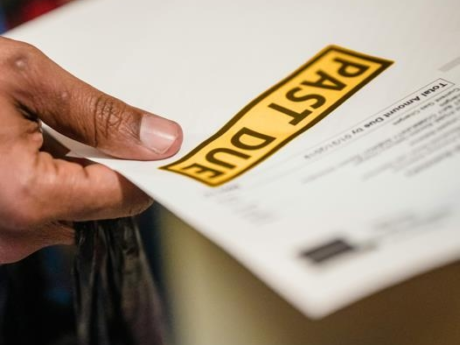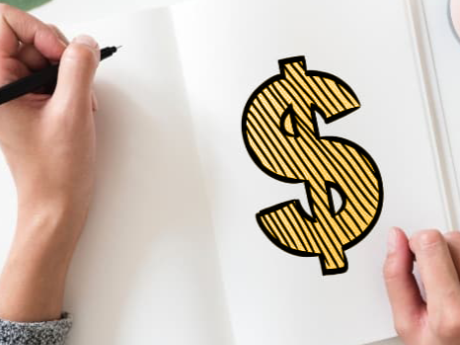Income tax debt relief

If you have outstanding income tax debt with the Canada Revenue Agency (CRA), you should deal with it sooner than later. Options are available to help you overcome income tax debt.
What is income tax debt?
Canadians must file provincial and federal income taxes to the CRA every year. Since your income can vary annually, the amount of taxes you pay can as well. After you file your taxes, you'll either get a refund from CRA, net out neutral, or owe them money. If you find yourself owing money, an unplanned tax bill can put a dent in your financial situation. If you can’t pay back what you owe to CRA within the deadline, your bill becomes income tax debt and could go to collections.
Why do I owe CRA income tax debt?
While everyone's situation is unique, but here are some common scenarios that may result in unexpected income tax debt:
- You have multiple sources of income, which can place you in an inaccurate tax bracket.
- You changed jobs halfway through the year, bumping you into a new tax bracket.
- You received government benefits—like CERB—but they’re now asking you to pay it back.
- You’re self-employed and didn’t remit enough in taxes.
- You withdrew from your RRSP during that tax period.
- You received a lump-sum payment or unexpected taxable windfall, like a pension pay out, and they did withhold taxes.
- You receive pension income, and they didn't withdraw enough taxes from your payment amounts.
- You didn't file your taxes in previous years.
What happens if I can’t pay my income tax debt?
The CRA has unique privileges when it comes to collecting debt. If you owe money to the CRA but don't make your payments, they have the power to obtain any funds owed to them through one or more of the following methods:
- Keeping your tax returns and GST/HST cheques: The CRA can keep the money it owes you. However, the Government of Canada has announced that the CRA will not withhold GST/HST credit cheques or the Child Tax Benefit from anyone with income tax debt related to a pandemic relief benefit, such as the CERB.
- Garnishing your income: The CRA can send notice to your employer (or anyone that pays you), requiring they send a portion of your paycheque or money owed to them instead of you.
- Judgment against your home: Like any other creditor, the CRA can obtain a court-appointed judgment on your assets, like your home, for the amount owed. If the CRA registered a judgment against your property, they could seize and sell your house (or other assets). Typically, once CRA receives a judgment, they‘ll let it sit and gain interest, making it very difficult for you to refinance or sell your house in the future.
- Make other people pay your tax debt: The CRA may issue a “Notice of Assessment” under section 160 of the Income Tax Act. The notice allows the CRA to make other people liable for your tax debt if you transferred assets or made gifts to those people. Once CRA has issued a Notice of Assessment to someone under this section, it will then use all its collection powers against that person.
How can I pay my income tax debt?
If you owe money to the CRA but cannot pay your balance when it’s due, there are both informal and formal debt relief options you can consider. Before you consider any formal options, you should do the following:
- Get up to date on filing your income taxes. The CRA is much easier to deal with if you are up to date on filing your tax returns—even if you have an outstanding balance. For the CRA to decide if and how they can best help your situation, they need to know how much you owe. If you're unsure if your taxes are current, hire a professional tax preparer to help you complete and file your tax returns date.
- Figure out if you can or can’t repay the debt in full. Prepare a budget and decide how much you can pay upfront and monthly. Even if you can’t repay, arming yourself with the best information about your situation will help.
- Negotiate with the CRA. The CRA will negotiate repayment plans with individuals who owe income tax debt. You may be able to reach an agreement to make monthly payments to the CRA until you pay your tax obligations in full. The CRA will only negotiate a plan that is 100% payment of the taxes owed, so be prepared to pay the total amount along with all interest and penalties accrued.
- Apply to the Fairness Provisions of the Income Tax Act. Fairness Provisions under the Income Tax Act can help you get relief by canceling and waiving penalties and interest from the CRA. To qualify, you'll need to prove that you have extraordinary circumstances and great financial hardship and will still be required to pay the principal amount owing.
- Consider filing a consumer proposal or bankruptcy. Filing a consumer proposal with a Licensed Insolvency Trustee will stop collection activity, interest payments, and penalties. Normally, a proposal is for less than 100% of the debt you owe. However, CRA has specific criteria for proposals. Another possibility is declaring personal bankruptcy as it includes personal income tax debt.
How to avoid income tax debt in future
To avoid any issues surrounding income tax debt, it’s best to:
- File your taxes on time. While most returns are due at the end of April, self-employed persons have an extended deadline of June 15.
- File any returns for years that you’ve missed to help you reduce further penalties and interest for those tax years.
- Seek help from a professional if you aren’t comfortable preparing your taxes or overwhelmed at tax time. If you’re a small business owner or self-employed, consider the help of a CPA to keep you on track.
- Make your payments on time and in full to avoid further penalties and interest from CRA.
Self-employed income tax debt
As a self-employed individual, it’s your responsibility to withhold your income taxes and keep track of employment-related expenses that are claimed when preparing your taxes. If you misjudge the amount of income tax to withhold for the year, you may owe at tax time.
For more information, explore this article on how to avoid income tax debt when you are self-employed.
If you’re struggling with income tax debt and aren’t sure about the best way to proceed, meet with a Grant Thornton debt professional for a free, confidential consultation to learn more about your options.
Take the first step to debt freedom
Speak to one of our debt solutions professionals during a free, no-obligation consultation.
Related articles
Loading








